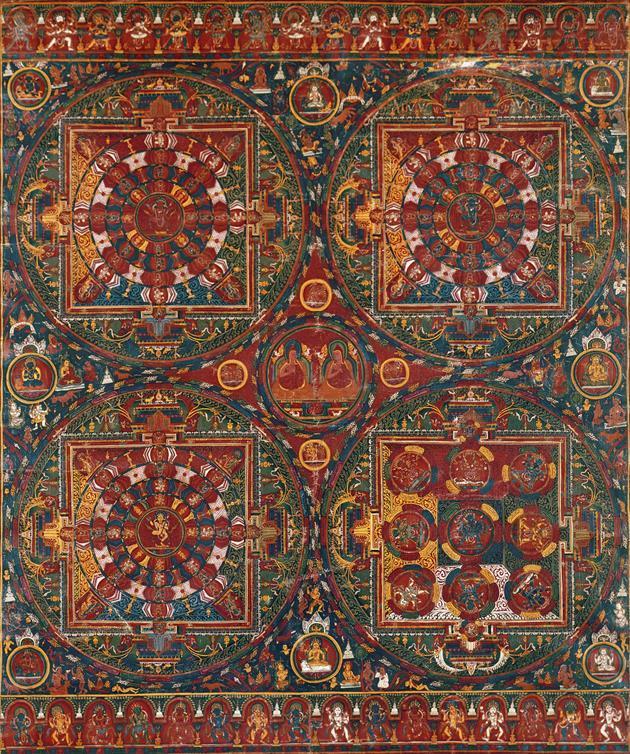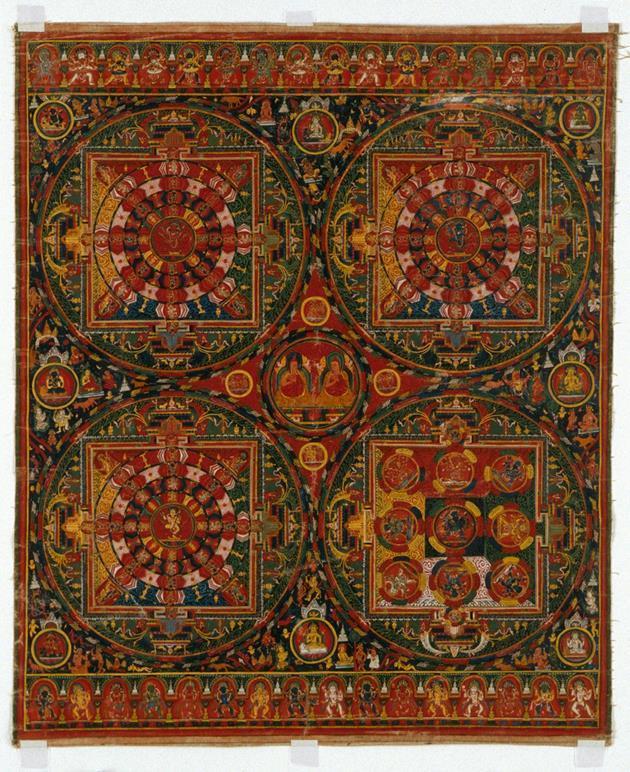Thangka with Four Mandalas of the Vajravali Cycle
15th century
A mandala (Sanskrit for “circle”) is a diagrammatic image of the palace—the universe—of a deity. A Buddhist practitioner uses it as a mental map to proceed, step by step, toward the deity at its center. This thangka (Tibetan hanging scroll) comes from a set of fourteen, each of which displays four mandalas. These scrolls helped followers of the Shakya order, one of the four main orders of Tibetan Buddhism, visualize the Vajravali, a specific collection of texts. As Shakya monks followed the Vajravali teachings, they would unroll and meditate on one painting after the next in a prescribed order.
At least three similar Vajravali sets were made at the Ngor Monastery in Tibet, seat of the Sakya order. Paintings from the first set have a dedicatory inscription showing they were commissioned by Ngorchen Kunga Zangpo, first abbot of Ngor Monastery, to commemorate the death of his teacher. This painting does not have the inscription, so it comes from one of the other sets. All were painted by a group of Newar (Nepalese) artists who traveled to Tibet to work for the monastery.
Color on cloth
27 x 23 in. (68.58 x 58.42 cm)
Overall h.: 34 5/16 in.
Overall w.: 29 5/8 in.
Gift of Mrs. John C. Atwood, Jr.
66.121
Provenance: [William H. Wolff, Inc., New York]; purchased from gallery by Seattle Art Museum (funds from Mrs. John C. Atwood, Jr. [Eugenia Fuller Atwood]), November 18, 1966


